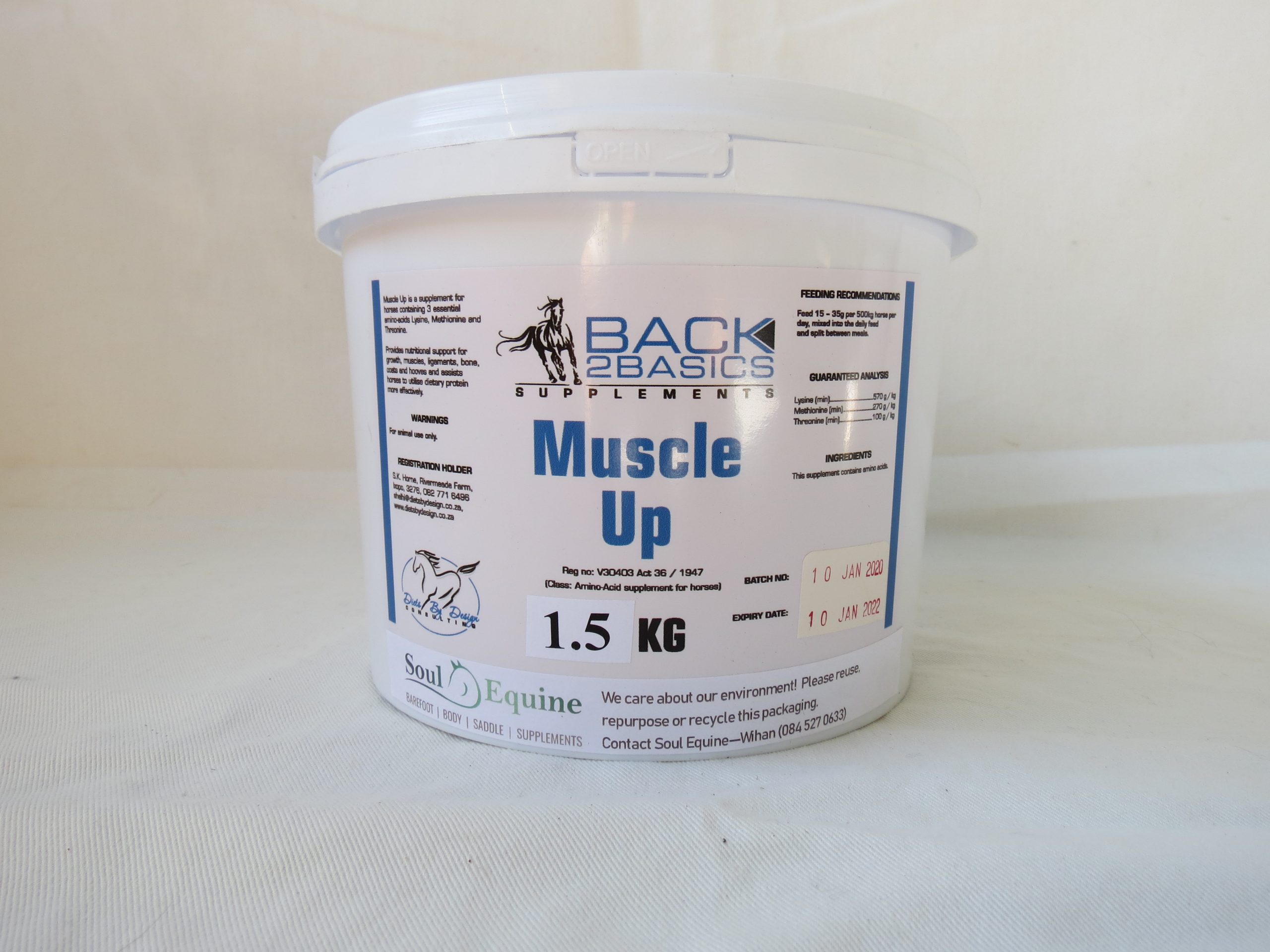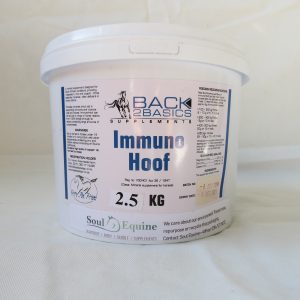Description
Changes in fertiliser and industrial emissions worldwide are leading to sulphur shortages in soils, thus reducing a plants ability to make amino acids and dropping the quality of plant protein. In plants a sulphur deficiency leads to a reduction in methionine production and also lowers lysine content. Many crops, including those used for hay, grazing and whose products are used in horse feeds, have lower crude protein levels and poor quality amino-acid profiles.
Lysine, Methionine and Threonine are 3 essential amino acids (EAA’s) which have been shown to be limiting to horses and are often deficient in horse feed. Unlike ruminants, horses are unable to produce certain EAA’s in their gut and rely on their diet for them. Muscle, bone, tendons, ligaments, hormones, immunoglobulins and keratin are a few of the body structures and proteins which rely on the presence of EAA’s for their production and maintenance. The addition of EAA’s will allow a horse to use the protein it is fed more effectively and can to some extent compensate for low protein intakes.
Muscle Up contains lysine, methionine and threonine in ample doses to make up for shortfalls in dietary supply. The quantity fed will depend on the horse’s age, breed and work levels. Hard working, actively growing and aged horses require more amino-acids and would benefit from 25 – 35g of Muscle Up daily while a horse at maintenance or doing very light work can be fed 15 – 20g daily to meet their requirements.
A brief rundown of the literature shows some interesting findings in plants and horses with regards to amino acids and their relationship to one another and supplementation shows positive responses in horses
- Mortenson et.al. Agricultural trends show sulphur deficiency lowers methionine content in many plants including grasses with a concomitant decrease in lysine.
- van Biljon in RSA fertilisers currently being used contain little or no sulphur and coupled with lower industrial sulphur dioxide emissions, sulphur inputs into soils have decreased. Soil samples from the main maize growing areas in RSA showed sulphur supplementation is necessary to prevent deficiency.
- Graham-Thiers & Kronfeld showed horses receiving supplementary lysine and threonine maintained muscle mass better than unsupplemented horses.
- Graham-Thiers et.al showed a low protein diet supplemented with lysine and threonine could sustain exercise in horses.
- Malesky et.al. showed horses supplemented with Lysine showed more efficient use of threonine, methionine and other non-essential amino-acids.
- Tucker indicates lysine is used for growth in foals and maintenance of connective tissue (bones, joints, tendons and ligaments etc.) in adult horses. Methionine is used in the maintenance of hair, coat and hoof structure while threonine is involved with muscle mass maintenance, adrenalin and hormone production.
- Kellon indicates lysine and threonine are the most likely EAA’s to be deficient and limit the horse’s ability to build muscle, while a methionine deficiency affects how muscles work.
Disclaimer – this supplement is formulated in accordance to NRC 2007 and other scientifically based guidelines for feeding horses. Muscle Up is used at owner’s risk with no recourse to claim for any losses deemed to be caused by the product or failure thereof.





